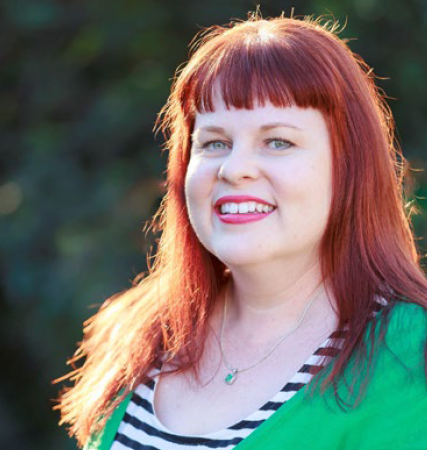By Kaley Schelks

Last year, I was lucky enough to be awarded ALIA’s inaugural Charlotte Henry Study Grant. I’m a relatively new librarian and I’ve almost completed my Master of Information Management through the University of South Australia. I’ve transitioned from previous careers and becoming a librarian has been the most satisfying career move I’ve ever made. I’m so proud to call myself a librarian! Early on I knew that public libraries were my passion. About six years ago, I was also lucky enough to land a fantastic job in the programming team with Ipswich Libraries, where I completed the research for my thesis. I have since accepted a new position with Queensland Memory at State Library of Queensland.
The study grant was life-changing. I was able to upgrade my outdated laptop to a brand-new workstation (laptop, monitor, hub and printer), which has enabled me to focus on the task at hand rather than dealing with stressful, unreliable technology. I also used the money to assist with costs associated with research for my thesis, and I still have money left over that I’m planning to put towards attending professional development and conferences.
I am happy to say that I received a high distinction for my thesis, ‘Quantifying the value of programming in public libraries: An examination of benefits, ROI, and research methods’. I am very proud to have completed research in this complex and highly understudied area. Currently, there is very little research on the impacts or value of public library programming. Rich findings came from my research, including positive benefits from new skills and knowledge, plus increased enjoyment, and wellbeing outcomes. I also found that library programs offer definite opportunities for deep and long-term impact, including life-changing improved health outcomes. I hope that this research will have clear and lasting benefits for public libraries, their patrons and communities.
Research is most useful if the findings can be applied to solutions for real-world problems. Funding in public libraries can be a contentious issue. However, in the recent post-COVID years, the need to justify how public money is spent is more important than ever. Soon, I will be meeting with the executive management team of the Libraries and Customer Service Department of Ipswich City Council. This council has shown that they value public libraries with the innovative initiatives they’ve implemented over the last decade, such as investment in four new libraries, including the award-winning Ipswich Children’s Library. Even though library programming is a key service of most libraries, it can sometimes be an afterthought or footnote in the reporting process. I will present my findings and the demonstrated positive – in some cases, lifechanging– impacts that library programming has made for Ipswich individuals, their community and the libraries.
I am hoping that this study will directly benefit the programming team (and, by default, benefit the community) with continued funding and staff allocations. Using both quantitative and qualitative research data, I’m aiming to give the decision-makers a better understanding of the difference public library programs are making every day in people’s lives. I would like to acknowledge the assistance and thank the management, staff and patrons of Ipswich Libraries for helping me to complete my thesis research.
The hope is that this research will make impacts beyond myself and Ipswich. I plan to develop my thesis further to be published and, perhaps, with a bit more luck, present the findings at a conference. It seems that measuring and advocating for the impacts of libraries is the topic of the moment. It was discussed during the recent online National and State Libraries Australasia strategic plan panel discussion, and it was the topic of a two-day symposium, Future Libraries: Better Communities, at State Library of Queensland. Over the two days, findings from research on two key library programming areas, digital inclusion and children’s literacy were presented, and stakeholders were able to contribute to a 10-year road map for public libraries. The presentations confirmed and validated my research conclusions, although my study examined a wider range of library program categories and each of their impacts and value.
I’m extremely grateful to ALIA and the benefactors of the late Charlotte Henry for this opportunity. I feel this study grant is such a positive way to honour the memory of Charlotte, her passion for public libraries and the impact they make within their communities. I’ve worked really hard to be this lucky and I hope that my work will have lasting impact on the library world.
Applications for the 2023 Charlotte Henry Study Grant are open and will close on 17 June. Find out more and apply.
This article will also appear in the June edition of INCITE which will be available on 15 June.